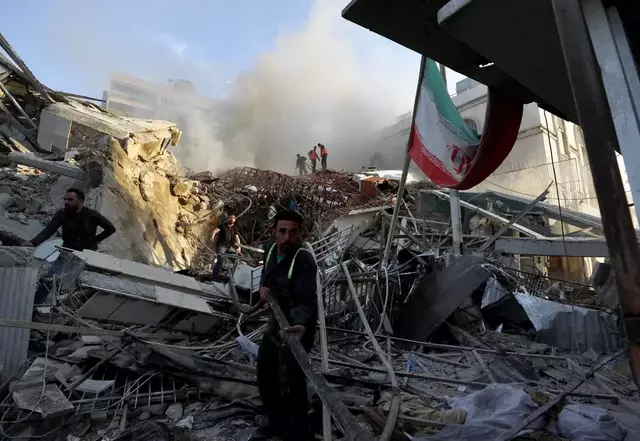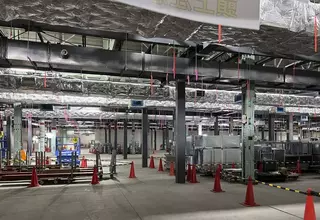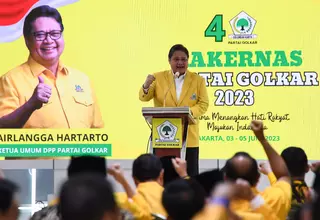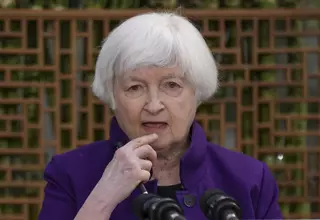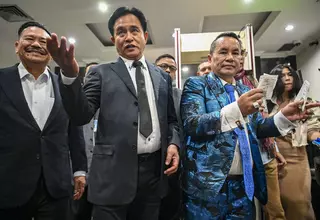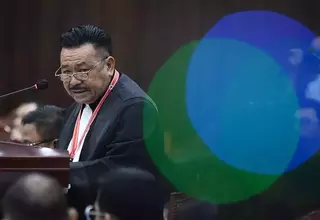Indonesia Seeks to Draw $28b Investment From China's Belt and Road Forum: Minister
Jakarta. Indonesia seeks to draw up to $28 billion worth of investment from Chinese investors from hundreds of projects put on the table during the Belt and Road Forum for International Cooperation, or BRF, in Beijing last week, Indonesia's National Development Planning Minister and National Development Planning Agency Head Bambang Brodjonegoro said on Tuesday (23/05).
The BRF was organized by the Chinese government on May 14-15 in Beijing. It invited 29 head of states and representatives from more than 130 countries and 70 international organizations. President Joko "Jokowi" Widodo came to the forum with an invitation to participate on cooperation and connectivity development to incorporate the vision and mission of the "One Belt, One Road" initiative proposed by Chinese President Xi Jinping in 2013.
Bambang told reporters in Jakarta on Tuesday that his ministry offered in Beijing investment opportunities in three provinces, North Sulawesi, North Sumatra and North Kalimantan — the nearest provinces from the Maritime Silk Road, an ancient trading line leading to South China Sea.
"The president decided we should not come only with a list of projects without any themes. […] At least we are focused on these three regions with an interest to boost economy in border areas beyond Java, and also to improve infrastructure," Bambang said.
He added most of the investment opportunities are in infrastructure developments, integrated industrial areas and tourism, with a total value of up to $28 billion for North Sumatra and North Sulawesi alone.
"These investments are meant to support economic growth in these regions," he said during a press briefing at his office in Jakarta on Tuesday.
Attractive Sectors for Investments
The minister said infrastructure developments in North Sulawesi and North Sumatra will include seaports, airports and toll roads connecting industrial areas to other ports.
North Kalimantan will be slightly different with a focus on investment in energy and processing industries.
"In North Kalimantan, the focus will be on agricultural plantations, energy – the region has a large potential for hydro energy – and also processing of mineral mining products, or smelters," Bambang said.
The minister said the investments will be on a business-to-business scale, using similar regulations as applied in many other countries.
"In terms of workforce, foreign workers will only fill in positions for which no Indonesians are available," Bambang said. "Foreign workers will be here only for the construction phase, operational and maintenance will be done by Indonesian [workers]."
Most of the industrial areas will be developed in North Sulawesi and North Sumatra.
North Sumatra already has two major industrial estates in Kuala Tanjung and Sei Makei, and North Sulawesi has one in Bitung.
Bambang added that both regions also have world-famous tourist destinations, including Lake Toba in North Sumatra and Pal Beach in North Sulawesi. Both are included in the top 10 priority tourist destinations in Indonesia.
"In North Sulawesi, for example, many more Chinese tourists have flown in after we offer a direct flight [from China]. There's a shortage of hotels in Manado [capital of North Sulawesi] now," Bambang said.
Belt and Road Initiative
The minister added that every investment opportunity has been adjusted to cater to the Chinese initiative.
"We have synchronized [these offers] to the Belt and Road Initiative. Papua, for example, is still too far from the belt. But it does not mean they [the Chinese] are not allowed to go to Papua, but our proposal is mainly centered on these [three regions]. If they want to invest in Papua, we will allow them," Bambang said.
This, according to Bambang, will avoid "scattered and unfocused" investments in Indonesian provinces. "If we're not focused, the investments can't go ahead," he said.
"We are going to integrate everything — airports, toll roads, seaports, tourist spots and industrial areas. We will also produce clean water and trains [and railways]. We want to speed up development in these three regions," the minister added.
The ministry will conduct a thorough mapping of the areas to be developed, at the same time offering investment opportunities to fund these constructions.
"Bappenas will play a greater role in mapping out the areas. If we only [present] a list of projects, then the BKPM [Investment Coordinating Board] can do it easily using their database," Bambang said.
Tags: Keywords:POPULAR READS
Nissan to Make Next-Generation EV Batteries by Early 2029
Solid-state batteries are widely seen as the next step for EVs.Airlangga Set to Extend Leadership in Golkar After Election Success
Under his leadership, Golkar rose to the second position in the legislative polls and successfully made Gibran the elected vice president.Yellen Says Iran's Actions Could Cause Global 'Economic Spillovers'
Iran's missile attack on Israel early Sunday came in response to what it says was an Israeli strike on Iran's consulate in Syria.Takeaways from Prabowo's Responses to Legal Motion Contesting His Election Win
Part of the argument addresses the claim that the candidacy of Gibran Rakabuming Raka, Prabowo’s running mate, is unlawful.Prabowo Camp Cites ‘Procedural Error’ in Legal Challenge by Rival Candidates
The Constitutional Court's main task is to address alleged discrepancies in vote tallies, which neither of the plaintiffs challenged.Popular Tag
Most Popular
